Gavin Williamson: How has he survived?
- Published
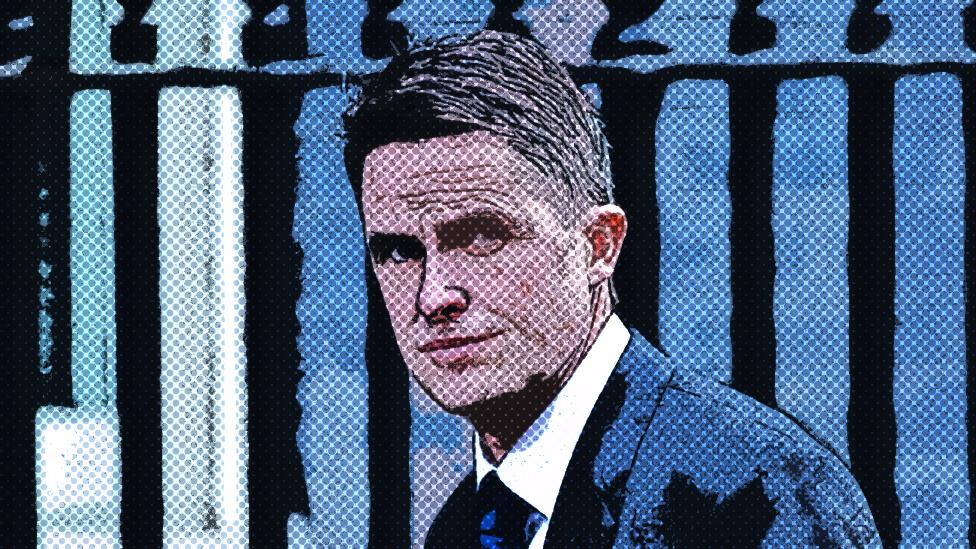
Gavin Williamson's political obituary has been written so many times he must sometimes feel like the walking dead.
So how has England's under-pressure education secretary survived in his job? Or is there a counter-narrative that he's been unfairly blamed for decisions not really his own?
Once again on Wednesday Mr Williamson will be defending himself in front of the Education Select Committee, a few months after he faced a grilling from MPs over the chaos with the last round of cancelled A-levels and GCSEs.
There won't be a shortage of new material.
Last week, on a single day, he saw the demolition of two of his biggest policies. The commitment to keeping schools open and continuing with exams were swept away in the new lockdown.
Having told millions of families of the vital importance of getting primary school children back into class, on the very same day he had to tell them of the vital importance of staying at home.
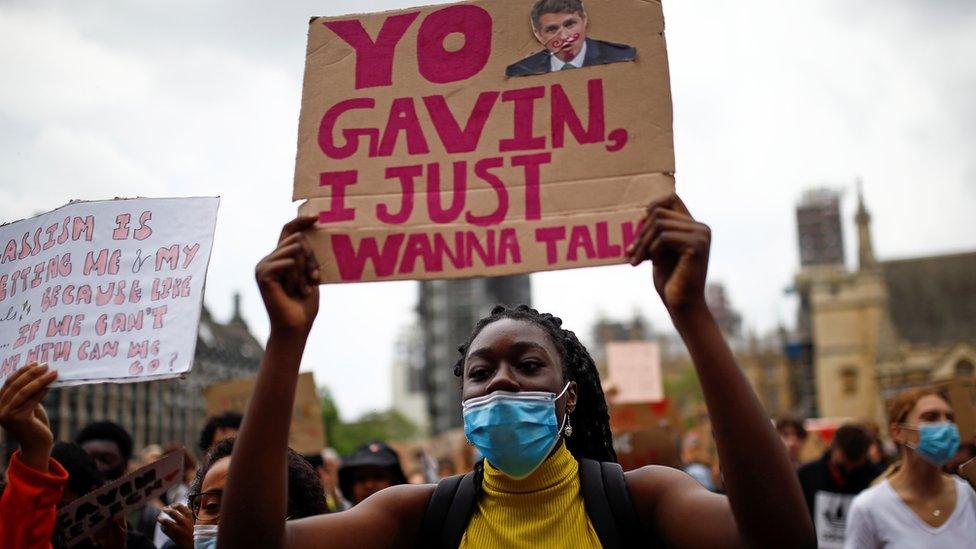
Protests were sparked over replacement exam results this summer
Insiders say it wasn't his choice and he'd been overtaken by changing evidence about the virus - but it cut the ground from under him and left Mr Williamson once again looking beleaguered and besieged, fending off hostile questions.
Labour taunted him for bringing "chaos and confusion" wherever he went. In a poll of 6,000 teachers, 92% thought he should resign. And a leader article in The Times pronounced that Mr Williamson was the Cabinet's "worst performer" who had "sacrificed his own future in government".
That was just last week.
Exams fiasco
But how much of the criticism is justified? And what is the reality behind a politician who gets accused both of being a ruthless Machiavelli and a hapless bungler, like Private Pike in Dad's Army.
Former Ofsted chief Sir Michael Wilshaw says there has to be some sympathy for Mr Williamson for facing the overwhelming disruption of the pandemic - and having to defend decisions that were not always of his making.

The U-turns began with the return of primary schools last June
But the sympathy doesn't go much further.
"Confidence needs to be restored. This is a weak secretary of state. No one knows if he's got the autonomy to make decisions or whether the strings are being pulled by Number 10," says Sir Michael.
"The exams fiasco was a major problem - and he didn't take responsibility."
Sir Michael, aged 74, was back teaching in schools last term, as they struggled with staff shortages because of Covid outbreaks. And he thinks the education secretary has shown no real understanding of the front-line pressures and has not inspired trust.
"Education is in a bad place," says Sir Michael.
But allies of Mr Williamson think he's being unfairly condemned for decisions driven by the changing pandemic.
And political historian Sir Anthony Seldon defends the education secretary for facing competing demands that were impossible to meet - whether from teachers, parents or factions within his own party.
Googling 'Frank Spencer'
Either way his character seems to intrigue the Googling public, because among the most common searches alongside "Gavin Williamson" is "Frank Spencer", the 1970s sit-com character who destroyed everything he tried his hardest to put right.
People are also searching his age - and maybe it's because he looks and sounds younger than his 44 years. That's not necessarily an asset in a political storm - as "youthful" for his supporters will be "immature" for his critics.
He has described himself as "mid-life", according to the woman who sold him a pet tarantula, who recalled that the MP described it as a mid-life choice between the spider and a sports car.
Mr Williamson had been chief whip, a parliamentary enforcer, and in a message that was as hairy and unmissable as his spider, he'd called the tarantula "Cronus", a mythical figure who devoured his own children and castrated his father.
But back to the question of taking responsibility. He has become the lightning rod for criticism of the government's handling of schools during pandemic.

Weaving a web: Gavin Williamson had a tarantula as a pet
And a fellow Tory MP shares the view privately that Mr Williamson now looks even weaker because he didn't make a dignified exit after the summer exams chaos - when the head of the exams watchdog and the Department for Education's top civil servant were forced out.
How the U-turns started
But it's worth going back to how accusations began about Mr Williamson being the U-turner in chief.
It started when plans were made last summer to bring primary pupils back into school.
Many parents, whose voices often get lost in education debates, were keen to get children back into lessons, particularly among those not able to work from home.
This was going to be the voluntary return of specific year groups in early June - and despite some pushback from teachers' unions, from the government's perspective this would have been seen as a good news story.

Sally Collier stepped down as head of Ofqual after the exams fiasco
Except - and it's an open question to how - the government's wider announcement also included the unexpected ambition for all primary pupils to go back for a month in the summer term, a claim school leaders immediately warned was an impossibility when social distancing had cut classroom capacity by half.
The Department for Education had to go along with a claim that everyone in the school sector knew would have to be dropped.
When this suggestion was inevitably scrapped there was irritation and confusion among families already feeling the frustrations of the lockdown - with a bigger impact than might have been realised.
Around that time, Gary Lineker tweeted a claim that a football game shown live on BBC television had given the English premiership its biggest ever TV audience in the UK, with 5.7 million watching.
But the story on the BBC website about the U-turn on primary schools had been read by almost 6.1 million people - it was important to many people and a narrative had begun.
Late night, last minute
For journalists covering what became a series of U-turn stories - whether on free school meals, exams or closing schools - it's often not been clear whether the decision making, often late night and last minute, has been in the same place as the blame.
You can see how public opinion shifted in a YouGov tracking survey. From the first lockdown last March and through to May, the public mostly thought education was being well handled.
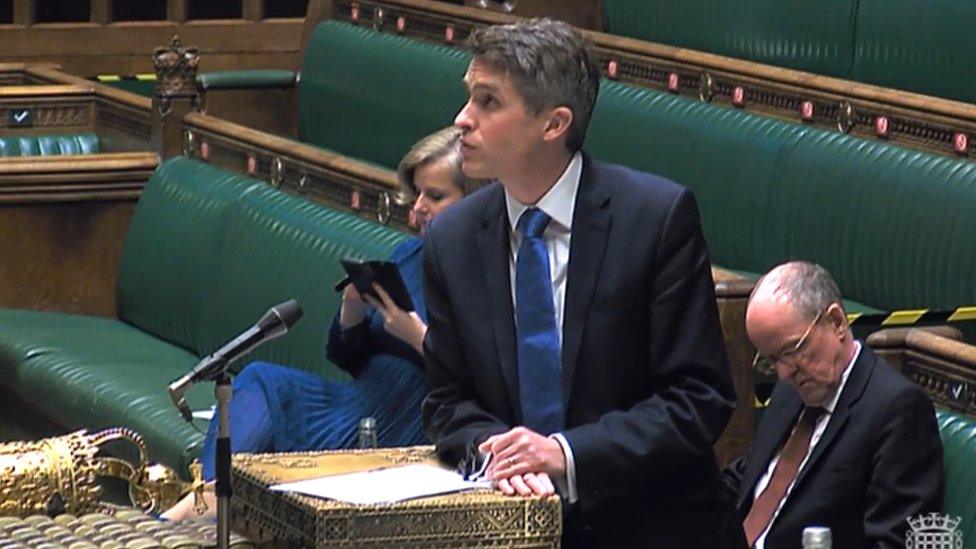
Gavin Williamson has had to keep defending his handling of schools in the pandemic
But from June onwards public opinion switched to being unimpressed and stayed that way, with YouGov figures this week showing about 60% think education is being badly handled.
The leader of the ASCL head teachers' union, Geoff Barton, says head teachers have been "exasperated" by so many last-minute announcements and sudden changes in direction.
School leaders, acutely aware of their accountability on results, have not taken kindly to political leaders appearing to shirk accountability for their own.
Mary Bousted, co-leader of the National Education Union, accused Mr Williamson of only being an expert in "putting his head in the sand".
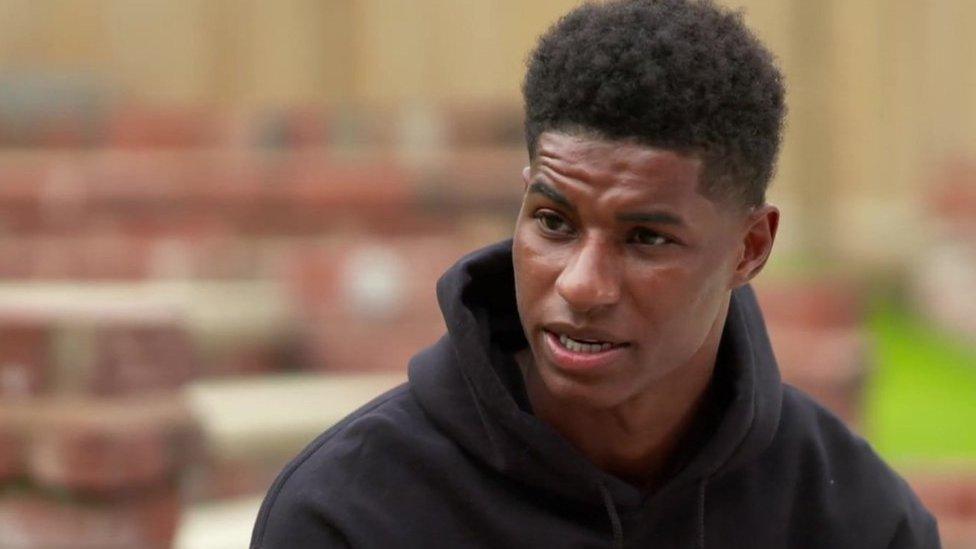
There was a U-turn over school meal vouchers after a campaign by footballer Marcus Rashford
Not about popularity
In many ways Mr Williamson could do with more "big beasts" such as Sir Michael Wilshaw around him, offering a wider range of opinions beyond those already seen as fellow travellers.
Although as Ofsted chief he sparred and often disagreed with the then education secretary Michael Gove, Wilshaw was a strong independent voice on the education landscape.
Under increasingly intense criticism during the pandemic, in political terms, Mr Williamson has been the only tree standing in no man's land and the only visible target for those wanting to complain about schools.
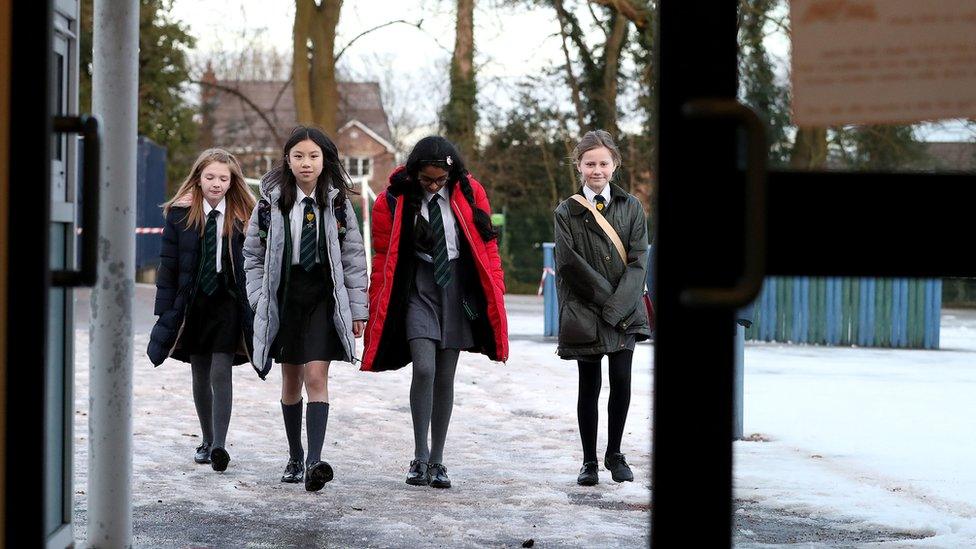
Pupils went back for one day this term before schools had to close again for many
Laura McInerney, a former teacher, education pundit and head of the Teacher Tapp research firm, says what has really damaged Mr Williamson has not been his unpopularity, but a perception that he is also ineffective.
Her survey of teachers showed 92% thought Mr Williamson should resign - but she says education secretaries, particularly Conservative ones who could blame the unions, could still be seen as successful despite a lack of classroom support.
It's the claims of chaos and lack of forward planning that have really harmed the education secretary - and a head teacher who emailed the BBC last week described it as being like the TV comedy, Blackadder Goes Forth, with generals out of touch with the reality of their decisions.
'Slick operator'
Such accusations of incompetence are strongly rejected by Sir Anthony Seldon, biographer of prime ministers and a former head teacher, who says calls to sack Mr Williamson are missing the point.
He says the education secretary is a "canny politician" and a "slick operator", but faced an impossible "maelstrom" in the pandemic.
"It's been an absolute nightmare. I can't think of any time since 1945 when it's been more difficult to make policy."
Education needed its own SAGE-style group of experts to come up with an evidence-based, agreed approach, says Sir Anthony.
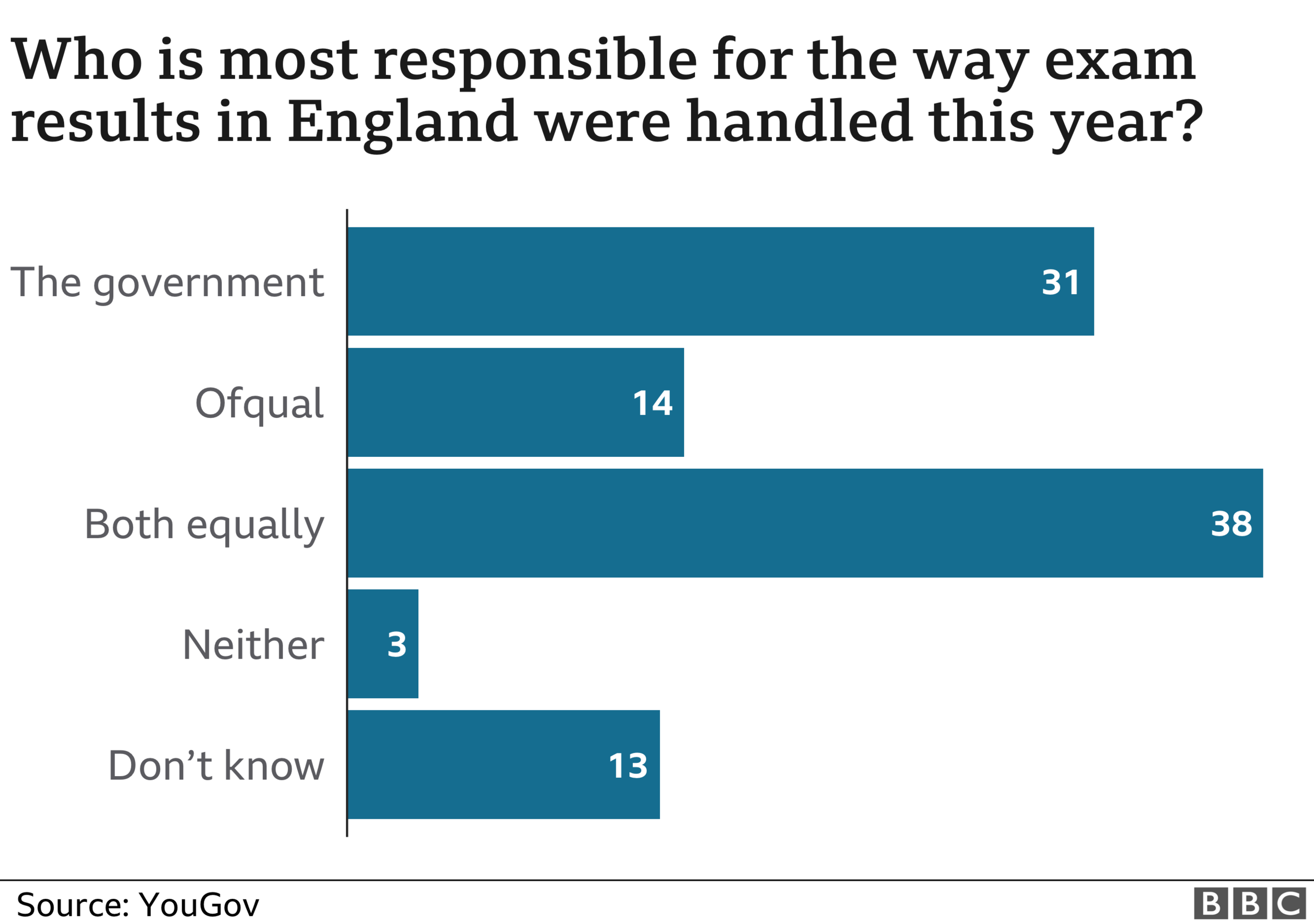
Polling last summer suggested the public thought both the government and Ofqual were to blame over exams
But he says England's school system is riven by "very low levels of trust and high levels of suspicion" between government and teachers and there was no chance of the shared decision making that was needed.
Another complaint from Mr Williamson's allies is that he has faced snobbery - that the northern, non-Oxbridge politician from a comprehensive school, is the member of the Cabinet taking more than his fair share of public pressure.
Gone in a reshuffle
A source close to the education secretary says Mr Williamson has stayed positive - and while the media narrative has been about U-turns and politicking, the priority within the Department for Education has been to keep responding to the pandemic and to keep children and staff safe.
But a senior Conservative politician puts Mr Williamson's latest difficulties in a harsher light - the Department for Education is seen as dysfunctional and Mr Williamson will be removed from office as soon as there is a reshuffle or when a head is needed to roll.
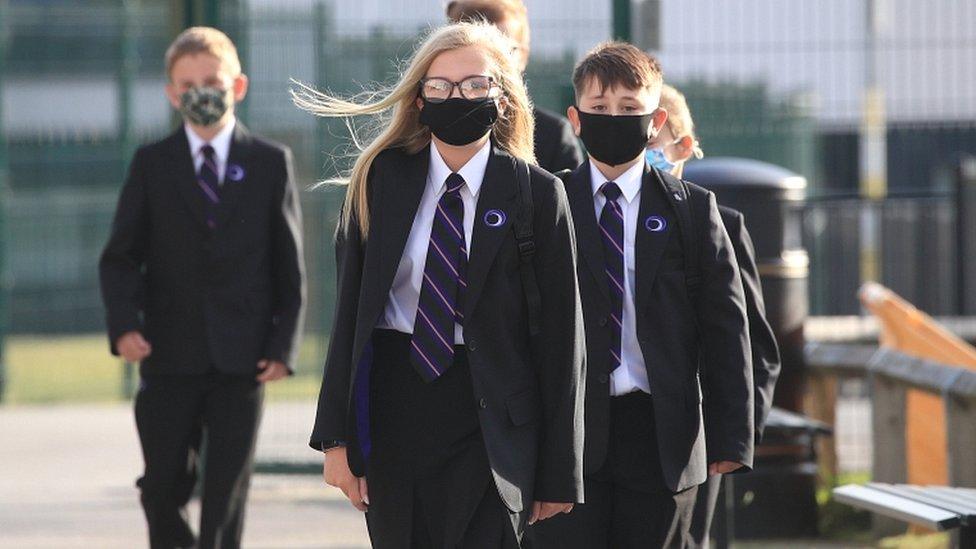
Secondary school pupils went back in the autumn - with the great majority of schools staying open through the term
He has lost so much political capital he can no longer stand up to other Whitehall departments, even over key issues such as opening schools, says the senior Tory.
Another suggests Mr Williamson will be removed when Boris Johnson wants to re-set his post-pandemic domestic policy and renew his agenda on "levelling up".
Hidden divisions
But how has Mr Williamson survived so far? He was once considered a bright enough star to be a leadership contender and now the questions seem to be about how he has avoided the chop.
Politics works on many different levels. Before becoming education secretary Gavin Williamson was sacked as defence secretary, after an inquiry into leaks from the National Security Council - claims that Mr Williamson denied.
While he was defence secretary he had faced accusations of being out of his depth - including his comments to Russia that it should "go away" and "shut up".
And on his departure from office, the BBC's political editor, Laura Kuenssberg noted how his critics suspected him of being "too quick to seek his own political advantage, too interested in his own future, too entertained by the dark arts of Westminster".
The Ministry of Defence is in a big Whitehall office block, but if you go down into its basement there is a perfectly-preserved Tudor wine cellar, a hidden remnant of Henry VIII's rule, out of sight, but still there.
In politics old enmities can run deep, even when out of sight, particularly among MPs who are meant to be on the same side. And conversations about Mr Williamson often circle back to his time as chief whip.
He knows where the bodies are buried, says one MP.
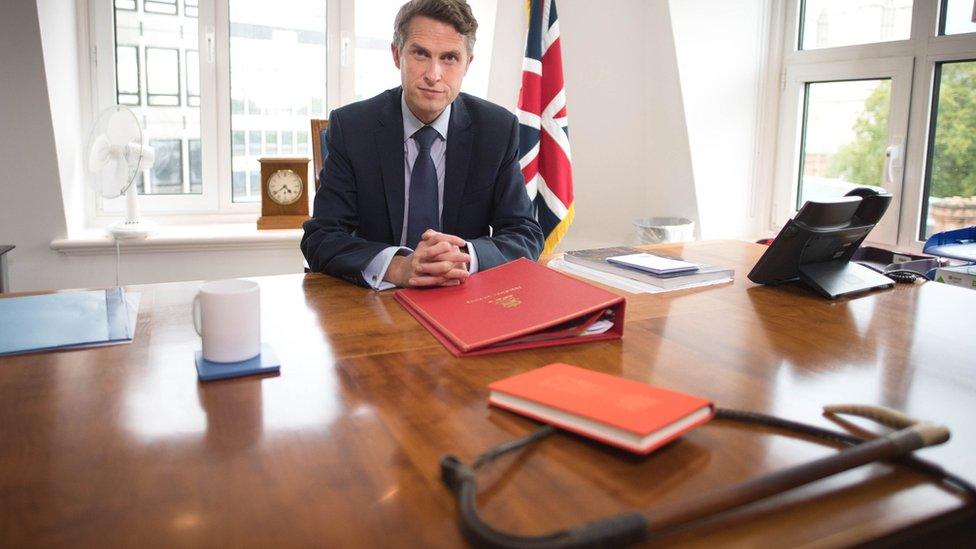
The education secretary seemed to have a whip on his desk as criticism rose about exams
When he was in deep trouble over exams last summer, Mr Williamson posed for a photo in his office in which a prominent item on his desk appeared to be a large whip.
The message again was there to be seen - and it was also a reminder that he has a track record of surviving in politics with unpopularity.
Another source, close to the inner workings of Whitehall, says there is a balance shifting between those in his party who have been fearful of him and those who are seeing his power ebbing away.
The final decision will be with Boris Johnson, who previously intervened to rescue his career. And it's that relationship which will decide his future.
It's a prime minister who seems to thrive on other people's approval and an education secretary who needs to show he can survive without it.